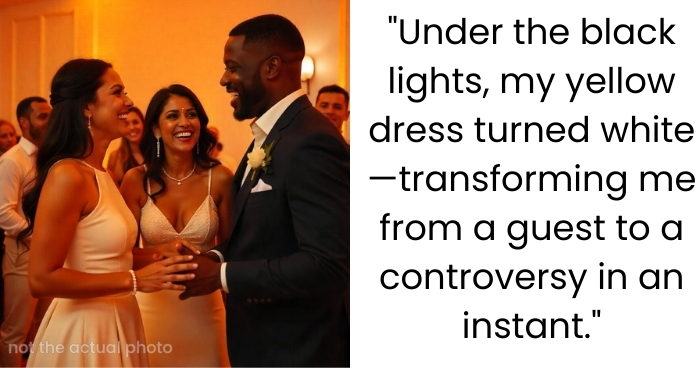Guest refuses to leave wedding after getting kicked out for ‘white’ dress. AITA?
OP attended the wedding of a very close friend, and she wore a bright orange dress — maybe even too bright, but never too wrong for the wedding. During the ceremony, cocktail hour, and dinner, OP got many compliments, including from the bride herself. And then all went well until the second reception went on—the black lights opened their showers and lit everything up, and OPs bright yellow dress turned whitish.
This is when a member of the wedding party approached OP and said the dress looked inappropriate and that she needed to leave. OP patiently pointed out that her dress was actually yellow and the way the light reflected on it changed the color. In spite of that explanation, the wedding party member got belligerent and threatened to drag OP out against OP’s will. OP held her ground and said she wasn’t leaving since she flew across the ocean to celebrate her friends special day. Then OP got more involved and reamed the wedding party member and reported it to the groom who just shrugged his shoulders and kept on dancing — which further insinuates he didn’t give a damn. The next morning, however, another guest told OP that she’d actually ought to have left — her being under the UV lights made other guests uncomfortable.
Read for more info Reddit
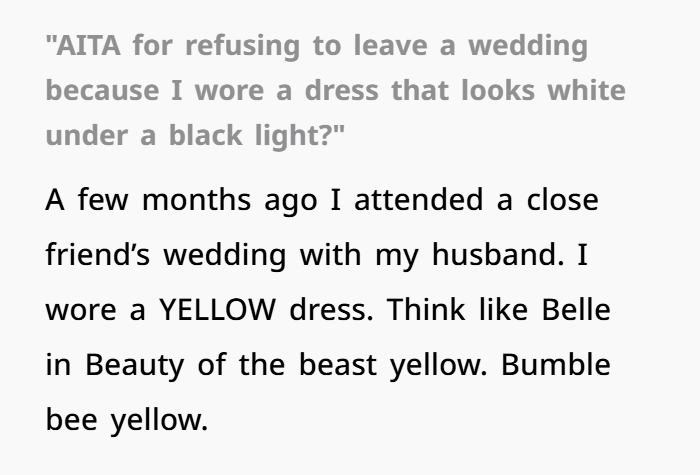

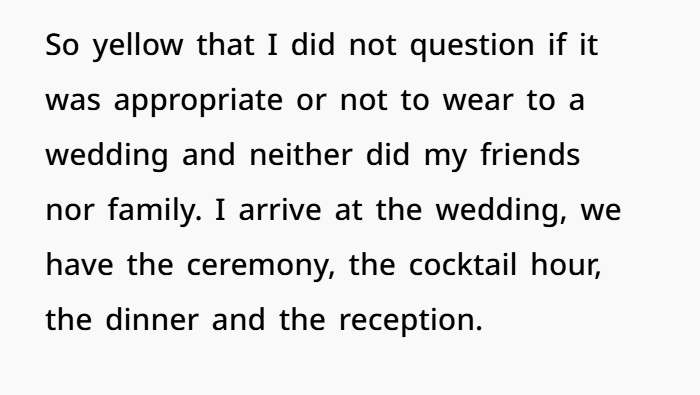
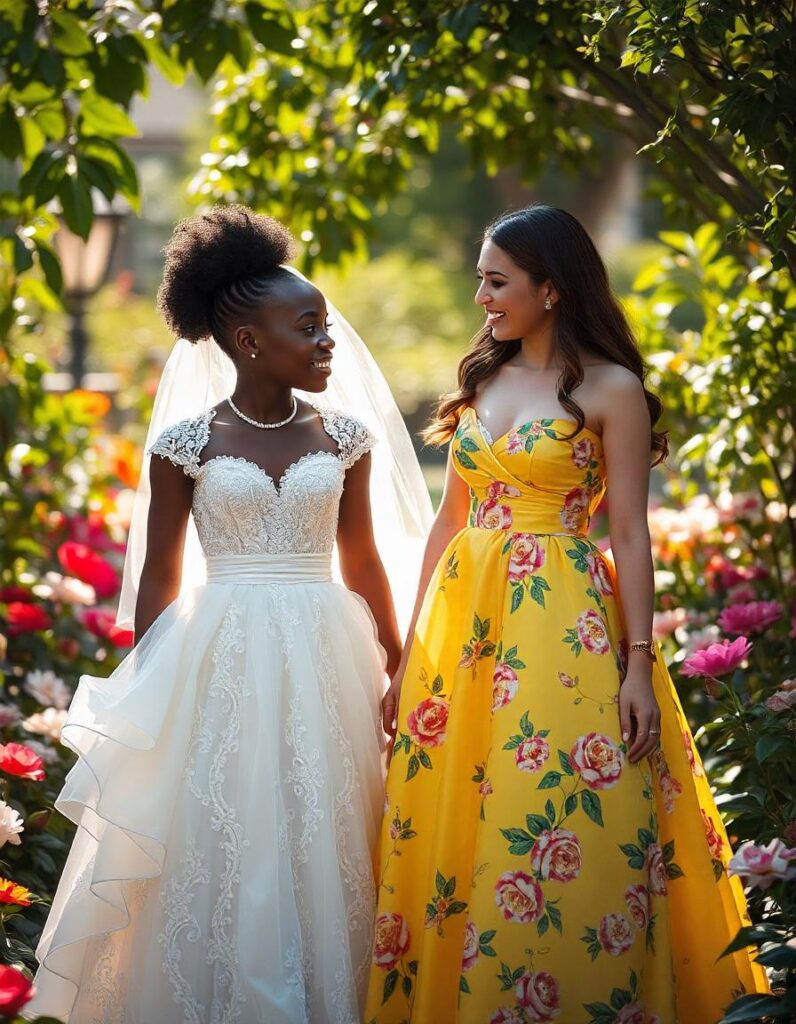
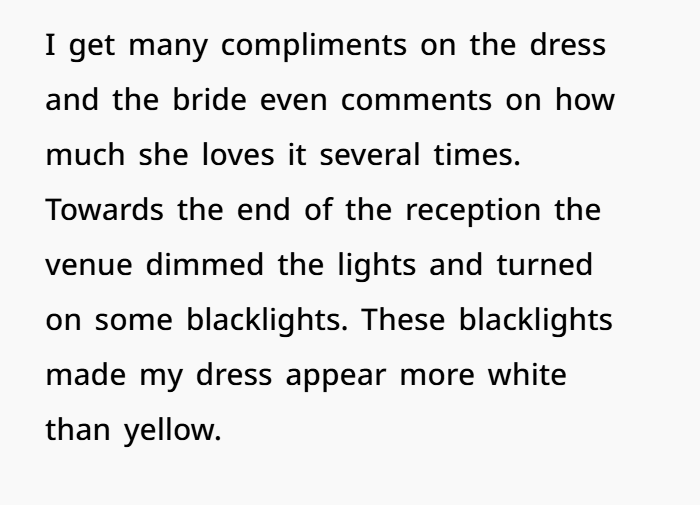
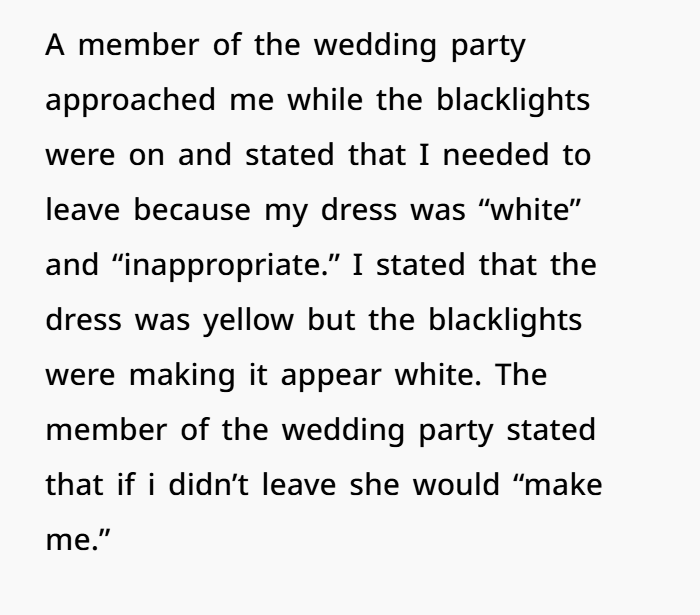
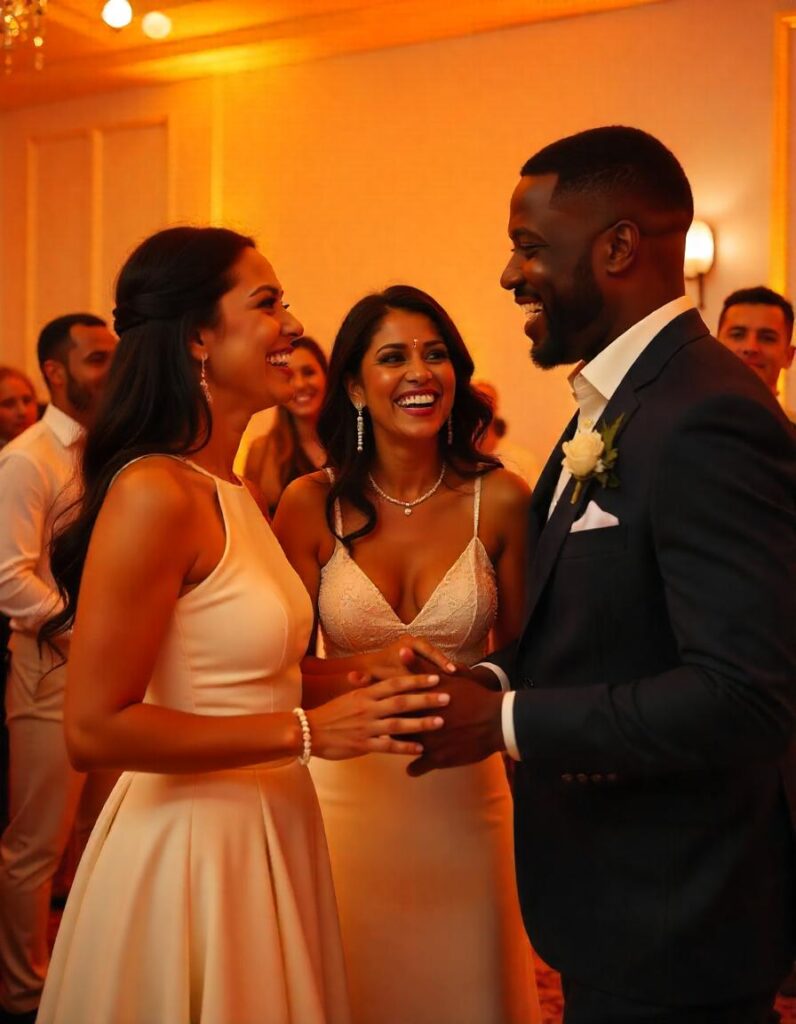
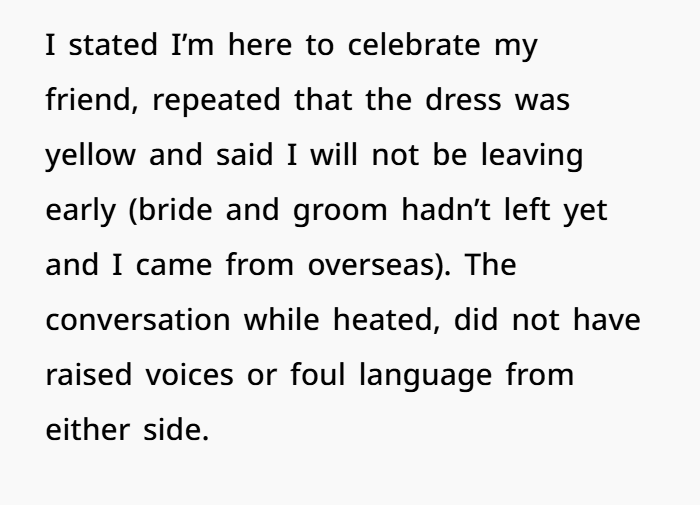
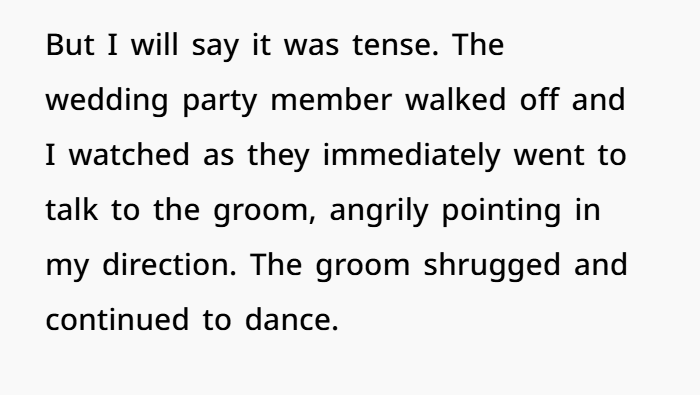
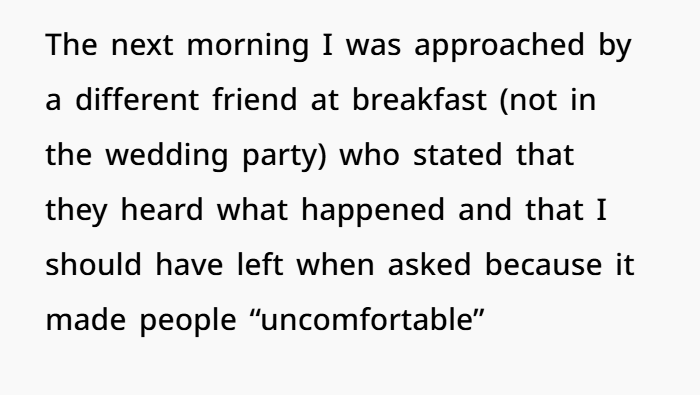
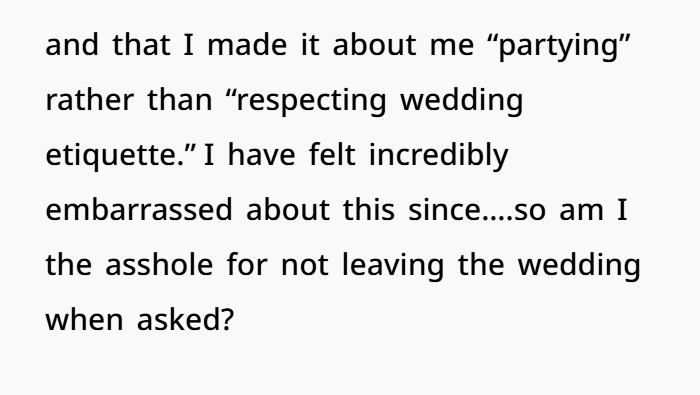
The conflict in this story isn’t about an actual white dress at a wedding—it’s about perception, social pressure, and how people react to unexpected situations.
1. The Significance of Wedding Attire Rules
Wearing white to a wedding is widely considered a social faux pas because it is seen as an attempt to upstage the bride. However, this etiquette is typically applied to intentional choices, not accidental optical illusions. OP had no way of predicting that the venue would use black lights, nor that they would affect her dress in such a way. Wedding etiquette experts generally agree that the intention behind a guest’s outfit matters—if a guest deliberately wears a white or white-adjacent dress, that could be inappropriate. But in OP’s case, she had worn an undeniably yellow dress with the bride’s approval.
2. The Psychology of Group Perception and Social Influence
One key factor at play here is the phenomenon of group perception. When the black lights turned on, some guests may have genuinely believed OP was wearing white, even if it was just an illusion. This could have triggered a confirmation bias—once the idea was planted that OP’s dress appeared white, those predisposed to uphold wedding traditions may have become hyper-focused on it, even if the situation was circumstantial. The wedding party member who confronted OP likely felt responsible for maintaining the wedding’s “rules” and may have acted out of a misplaced sense of duty rather than genuine malice.
3. The Role of the Bride and Groom in Conflict Resolution
One telling moment in the story is the groom’s reaction—he shrugged and kept dancing. This indicates that neither he nor the bride (who had previously complimented OP’s dress) viewed OP’s presence as an issue. Typically, if a bride is upset about a guest’s attire, she will either address it directly or have a close friend/family member intervene. Since the conflict was driven by a wedding party member and not the couple themselves, it suggests an overreaction from that individual rather than an actual breach of etiquette.
4. The Expectation to Leave: Was It Justified?
There’s an unspoken expectation at weddings that guests should prioritize the couple’s happiness over their own. However, that doesn’t mean guests must leave over a misunderstanding, especially when the bride and groom seem unbothered. OP’s refusal to leave was reasonable—had she complied, she would have left a wedding she traveled overseas for, over an issue caused by lighting rather than her own choices.
Here’s what top commenters had to say about this one:
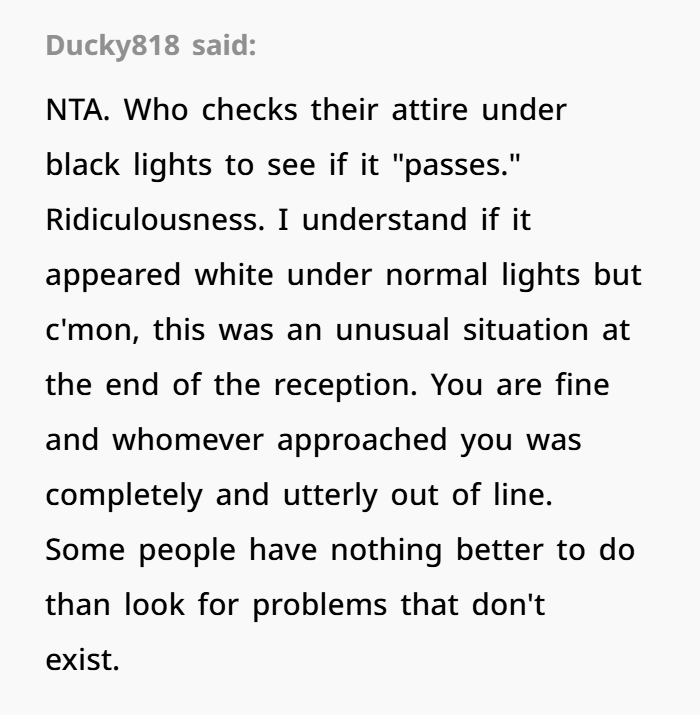
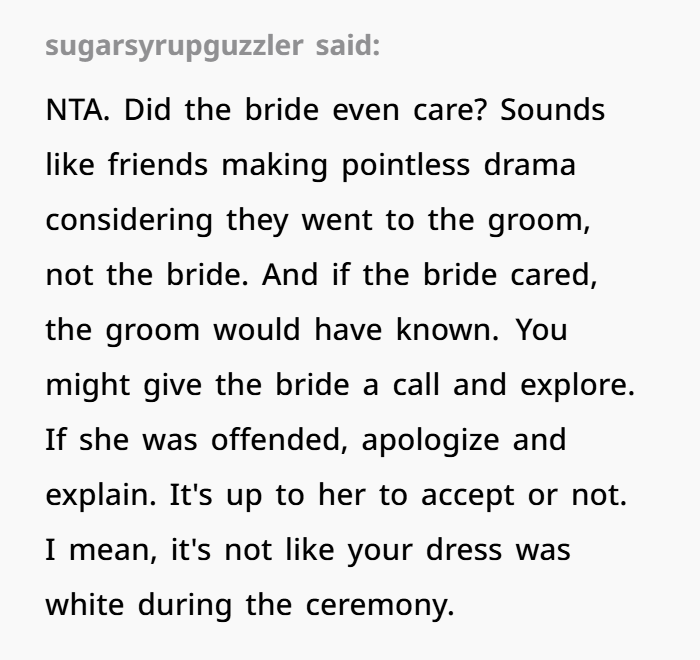

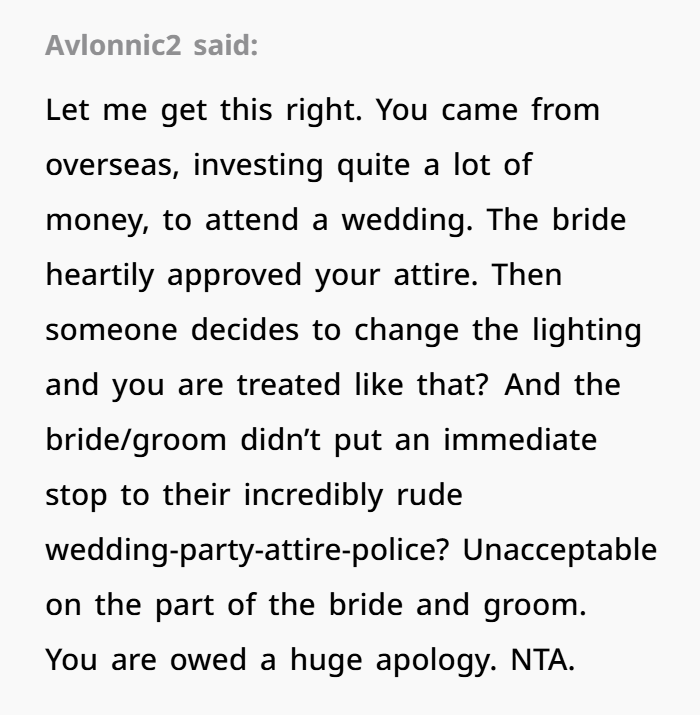
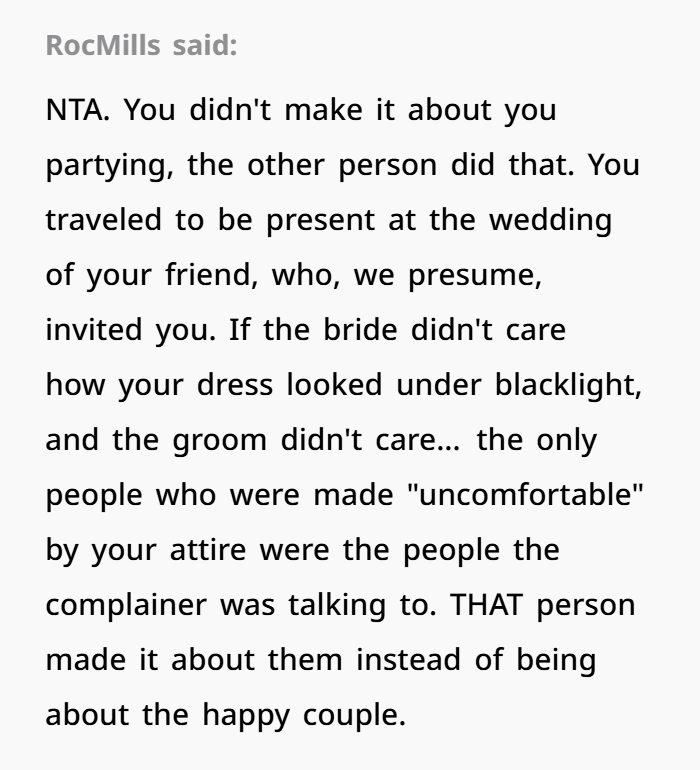
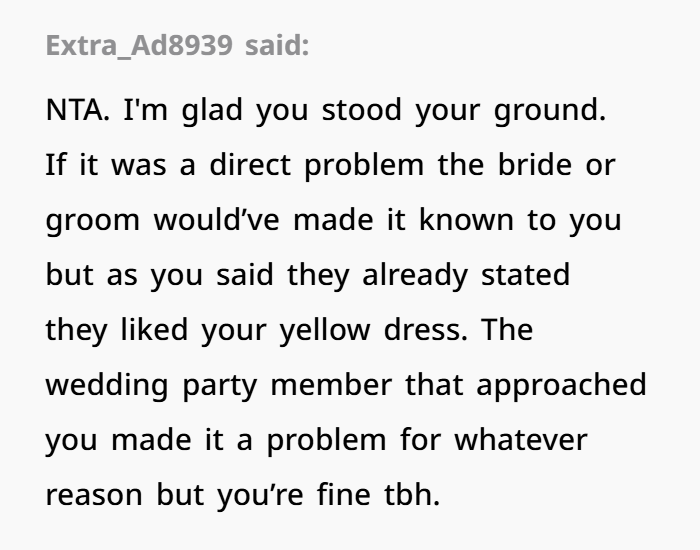
OP is not the asshole. It was not her fault that she was given black lights, the bride and groom never complained and she was subjected to an unfair attack that she never caused. And no, she should not have had to leave the wedding, which is the real problem and overreaction coming from the wedding party member. If anything, OP is the one who should be thinking about their actions, not the people who made it worse.

